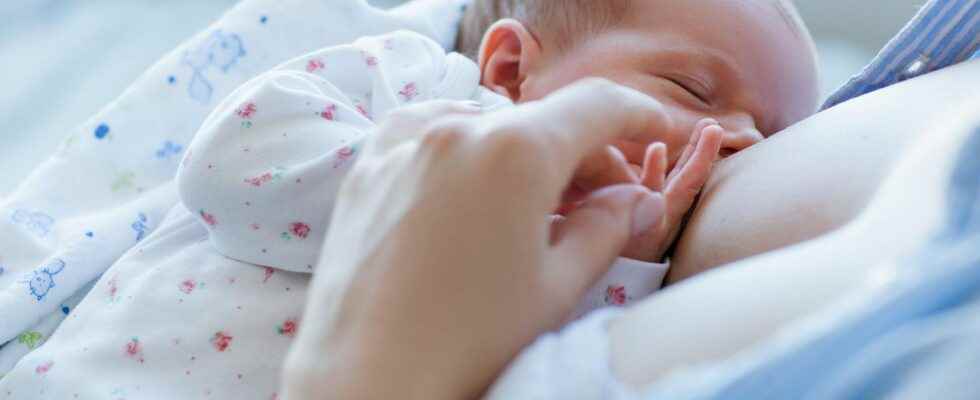study
Microplastics detected in breast milk for the first time
© golubovy / Adobe Stock
Breastfeeding is best for our babies. At least that’s what we’ve been told so far. But now microplastics have been found in breast milk for the first time. Should I stop breastfeeding now?
Breast milk is considered a miracle cure. It is not only the perfectly balanced food for a baby’s first months of life, but also good for the skin and the immune system, it has an antibacterial and anti-inflammatory effect. But this picture is now clouded. As the British newspaper “The Guardian” reported, an Italian research team discovered particles of polyethylene, PVC and polypropylene in human breast milk for the first time, which the researchers said was “a cause for great concern”.
Breast milk contaminated with microplastics in 26 out of 34 women
For the study, published in the journal Polymers, an Italian team of researchers examined breast milk samples from 34 healthy mothers one week after giving birth. Microplastics were detected in the breast milk of 26 women. Since no connection with the diet of the women could be determined, the research team assumes that the ubiquitous occurrence of microplastics in our environment is the reason for the pollution.
Previous research has shown the toxic effects of microplastics in human cell lines, laboratory animals and marine animals. The effects of the tiny plastic components on living people are still unknown. Therefore, further research is now urgently needed: “Finding ways to reduce exposure to these pollutants during pregnancy and breastfeeding will be crucial,” says Dr. Valentina Notarstefano, one of the authors of the study become that the advantages of breastfeeding are much greater than the disadvantages (…). Studies like ours must not reduce child breastfeeding, but raise public awareness to pressure politicians to promote pollution reduction laws.”
Cow and bottle milk are not a healthier alternative
Microplastics were detected in the human placenta by an Italian team as early as 2020. Further studies also found that bottle-fed babies are likely to swallow microplastics every day as the inner surfaces of polypropylene baby bottles are degraded with use, especially when filled with hot beverages. Cow’s milk is also often contaminated with microplastics.
In order to keep microplastic contamination in breast milk as low as possible, Notarstefano advises expectant mothers to avoid plastic-packaged food and beverages, cosmetics and toothpaste with microplastics and clothing made of synthetic fabrics as much as possible, even if this small study still does no specific microplastic risk factors could be identified.
The scientist strongly advises further studies: “So far, there is no knowledge of the possible effects of microplastics and related pollutants on the infant. Therefore, there is an urgent need for further studies, as the early life stages, newborns and young children are more susceptible to chemical and particulate pollution appears to be. This should be a priority for health research.”
Sources: theguardian.com
This article originally appeared on PARENTS.

